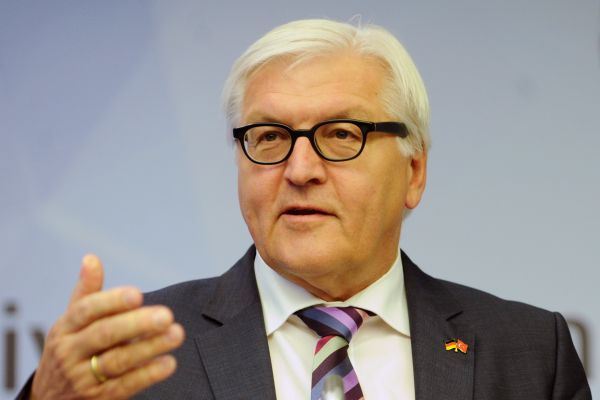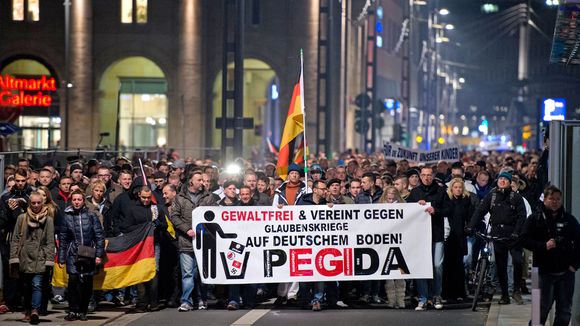In Berlin a new Russian, or more precisely a pro-Russian think tank titled 'Dialogue of Civilizations', associated with the global public forum of the same name with the headquarters in Vienna, was launched. The structure will be led by the former head of Russian Railways, Vladimir Yakunin, the former Secretary General of the Council of Europe, Walter Schwimmer and the former head of the Friedrich Ebert Foundation office in Moscow, Peter Schultz. The news today is widely discussed in German media and expert circles. Many of the leading German media outlets, including public television, tend to believe that this will be a new lobbying structure, operating, if not directly for the Kremlin, then at least for the Russian political elite close to it, which includes Yakunin.
Peter Schultz, in turn, says that the institute will not be engaged in 'propaganda'. At the same time, it is clear that the 'Dialogue of Civilizations' will obviously not act at the expense of Russia's interests, since, according to the hypothesis of Schultz, it will be funded by "Russian oligarchs through Switzerland." The head of the Program for Eastern Europe at the German Council on Foreign Relations, Stefan Meister, suggested that in many ways the success of the new Institute will be identified by the fact whether it will be able to attract the influential German scientists and political experts.
At first glance it seems that it's not the best time for the foundation of a scientific institute, given the fact that current relations between Germany and Russia leave much to be desired. There is a continuation of the protracted crisis: the anti-Russian sanctions imposed by the EU have been extended once again, while NATO is conducting military exercises in the Baltic Sea in close proximity to the Russian border. The latter, by the way, have been criticized by the German Foreign Minister Frank-Walter Steinmeier. Prominent representatives of the main ruling party, the CDU, in turn, have criticized Steinmeier himself.

So far, supporters of transatlanticism have the last word in the German government. But today, when the level of approval of Angela Merkel's foreign and domestic policies in the country has decreased significantly, the situation is not as straightforward as in the days when the CDU ratings were stably above 40%. In Germany, there is no undisputed consensus on the 'Russian question' even in the government, let alone the business elite, which suffered from mutual sanctions or wide sections of the population, which are not very interested in the Crimea-Donbass issue. In this regard, the bet on the opening of a new think tank as an instrument of influence on the German public may justify the means: an effectively pursued struggle for minds can bring concrete political gains and promote the adoption of 'right' political decisions at a certain stage. This is facilitated by Germany's liberal laws, where NGOs can freely operate and carry out their information activities [for example, in the US or Russia there are restrictive laws on 'foreign agents']. The special attitude of Germans to Russia, which has been developed under the influence of the historical complex of guilt for unleashing war, contributes to a positive perception of the idea of the restoration of the German-Russian relations outside the context of Ukraine.
It is noteworthy that even during the economic crisis Moscow is not going to abandon the strategy of increasing its "soft power" in Germany, and is ready to invest tens of millions of euros in such an ambitious project as the creation from scratch of a new research institute, where about 50 people will be working. However, German experts and journalists close to the government consider Russia's informational activity not only as a manifestation of 'soft power', but as part of a 'hybrid war'. It is argued that this concept was developed by the Russian General Staff and involves combining elements of the information war, deliberate misinformation and manipulation of public opinion, a cyberwar, the coordinated work of the security services and other law enforcement agencies. The operation to establish Russian control over Crimea is used as a classic example of 'hybrid war' tactics. However, 'hybrid war', which is presented by Western experts and journalists as Russia's 'know-how', in fact, fits perfectly into the US concept of Joseph Nye's 'Smart Power', which implies a combination of 'soft' and 'hard' (military) force. For example, the former US secretary of state and a current favorite of the presidential race, Hillary Clinton, advocated the active use of 'Smart Power' in US foreign policy. Thus, speaking of 'hybrid war', Russia should realize that Moscow has adopted and probably modified from a regional perspective American conceptual developments.
Berlin has resorted to counter-measures aimed at countering Russian information influence. In early July, the ARD TV channel broadcast the 'Game of Shadows: Putin's undeclared war against the West', which analyzed the activities of the various socio-political groups and bloggers working in Russia's interests in the German information field. The program noted that Russia has a variety of channels to communicate with completely disparate German political forces – from the traditionally friendly Left faction and a certain part of the Social Democrats to the extreme right-wing parties ('Alternative for Germany') and movements (Pegida).

German government officials and ruling deputies do not hide their concern over the Russian media activity in Germany [we may note the activities of the German editions of Russia Today and Sputnik, the Compact magazine, the German-Russian Forum and others]. In this regard, it is not surprising that many of the major publications (Spiegel, Die Welt, Frankfurter Allgemeine Zeitung) and public television channels simultaneously 'shot' critical publications on Vladimir Yakunin's project and his 'Dialogue of Civilizations' institute. The formation of the new brainchild of the former head of Russian Railways will take place in conditions of hard information pressure.






